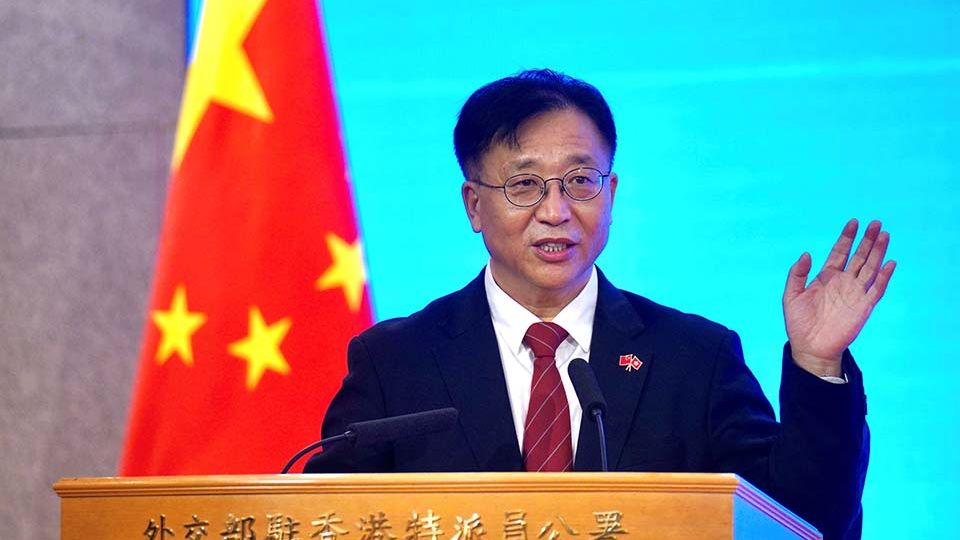July 31, 2024
HONG KONG – Cui Jianchun, the new commissioner of the Ministry of Foreign Affairs in the Hong Kong Special Administrative Region, said on Tuesday that national security laws in Hong Kong are suitable for the “one country, two systems” framework, and committed to further promote the city’s safe and stable environment to international communities.
He made the remarks at the inaugural press conference since succeeding Liu Guangyuan as the commissioner in April.
Cui told local and foreign press that in the past three months since he took the office, he met with 62 consuls general in Hong Kong.
READ MORE: HK’s national security regime impeccable by international standards
None of them have voiced opposition to the National Security Law for Hong Kong (NSL), and no consuls support sanctions against Hong Kong officials for their efforts of safeguarding national security.
Cui said that many countries have their own national security laws, and compared to these, related laws in Hong Kong are mild and appropriate for the current “one country, two systems” framework.
He expressed firm opposition to some countries’ threats to impose sanctions on Hong Kong’s individuals and organizations. In his opinion, this is blatant intervention of the internal affairs of the HKSAR and China, which will only lead to a lose-lose situation.
He noted that during a recent meeting with the United States Consul General in Hong Kong and Macao, Gregory May, he emphasized that Hong Kong has an independent judicial system, and everyone should respect this system.
Cui added that the implementation of NSL is conducive to the business environment, pledging to continue promoting Hong Kong’s safe and stable social environment on the global stage.
Cui also remarked that the resolution adopted at the third plenary session of the 20th Central Committee of the Communist Party of China will bring significant opportunities and dividends.
READ MORE: Hong Kong’s National Security Law protects SAR’s political system and order
To seize the opportunities, he called on Hong Kong to ramp up efforts in developing a high-quality market economy, and bolster the city’s role as significant centers in eight sectors, such as finance, trade, and shipping.
Cui also vowed to work with the SAR government to strive for Hong Kong to join the Regional Comprehensive Economic Partnership (RCEP), the world’s largest free trade bloc.
Cui said he hopes that Hong Kong can join the RCEP as soon as possible, noting that it is crucial for the city’s future development, and will help Hong Kong better play the role as a “super-connector” and “super value-adder”, Cui added.


